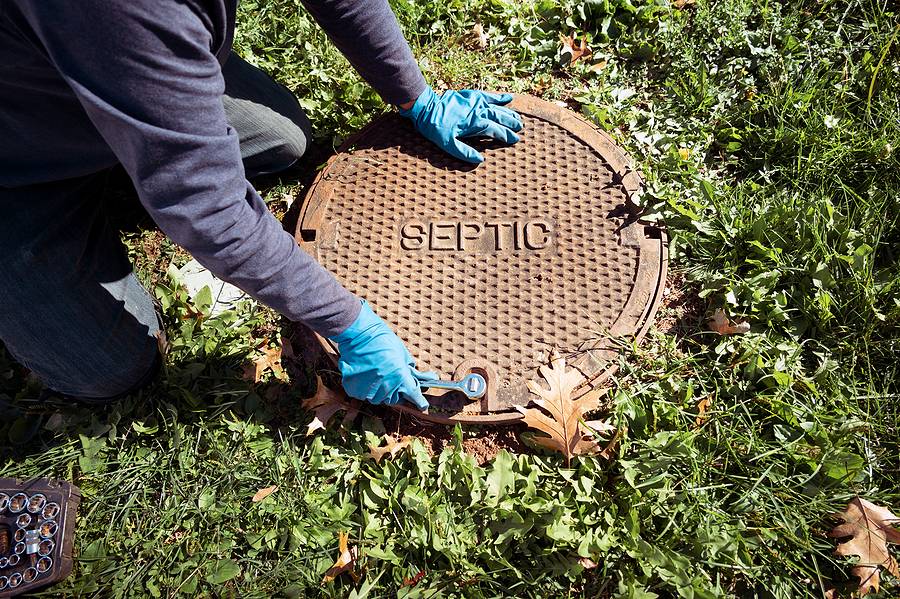
If you live in a rural or suburban area, chances are you have a septic system instead of being connected to a municipal sewage system. A septic system is an underground wastewater treatment system that relies on natural processes to treat and dispose of household sewage. It's important to know what type of septic system you have in order to properly maintain it and avoid costly repairs.
There are several types of septic systems, but the most common ones are conventional septic systems and aerobic treatment units (ATUs). A conventional septic system consists of a septic tank and a drain field, while an ATU adds an additional step of treatment to the process.
A conventional septic system is comprised of a septic tank, which is a watertight container usually made of concrete, fiberglass, or polyethylene. The septic tank holds and treats the wastewater that comes from the household. The solid waste settles to the bottom of the tank and is partially broken down by bacteria, while the liquid waste (effluent) flows out of the tank and into a drain field, where it is further treated and absorbed into the soil.
Aerobic treatment units (ATUs) are similar to conventional septic systems but have an additional step of treatment. ATUs use oxygen to promote the growth of bacteria that break down waste more efficiently. ATUs also require electricity to operate, as they use blowers and pumps to inject oxygen into the wastewater.
Knowing what type of septic system you have is important because it affects how often you need to have your septic tank pumped. Conventional septic tanks should be pumped every three to five years, depending on household size and water usage. ATUs, on the other hand, require more frequent pumping, usually every one to three years. Failure to have your septic tank pumped regularly can result in clogs, backups, and costly repairs.
When it comes to septic tank pumping, it's important to hire a professional septic company to do the job. Septic tank pumping is not a DIY project, as it requires specialized equipment and knowledge. A professional septic company like Rooter Septic Services will also inspect your system for any signs of damage or potential issues, such as cracks or leaks, that could lead to larger problems down the line.
In addition to regular septic tank pumping, there are several other steps you can take to maintain your septic system and prevent issues. First, be mindful of what you put down your drains. Avoid flushing anything besides human waste and toilet paper down the toilet, and avoid pouring fats, oils, and grease down the sink. These items can clog your system and prevent it from working properly.
Second, conserve water. The more water you use, the more strain you put on your septic system. Fix any leaks or drips, install low-flow toilets and showerheads, and spread out your water usage throughout the day to avoid overwhelming your system.
Finally, have your system inspected regularly. Rooter Septic Services can inspect your system for signs of wear and tear, and recommend any necessary repairs or maintenance. Regular inspections can help prevent costly repairs down the line and keep your system running smoothly.
Knowing what type of septic system you have is an important part of maintaining your system and preventing costly repairs. Regular septic tank pumping, hiring a reliable septic company, and being mindful of what you put down your drains and how much water you use can all help keep your system running smoothly.